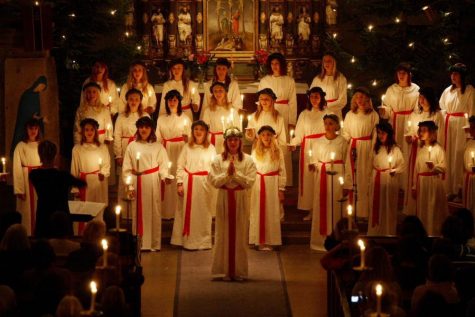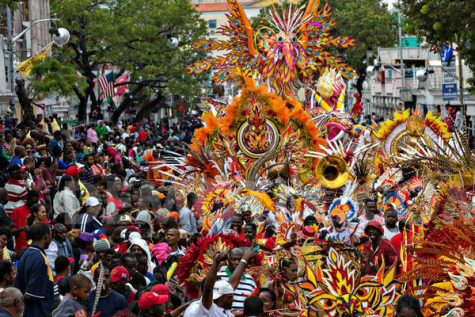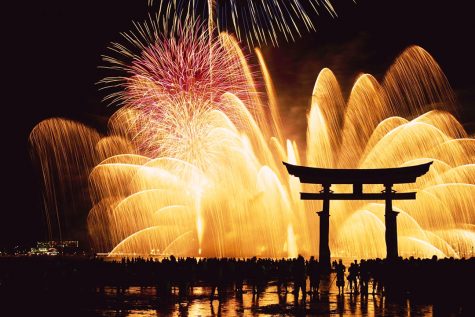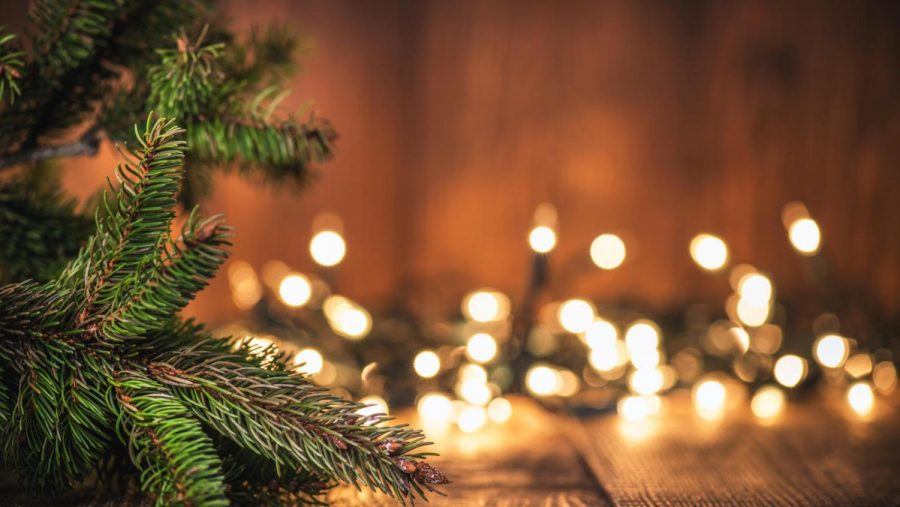Holidays Celebrated During December
January 6, 2020
BY OLIVIA SIMPSON
The month of December is a very happy and joyous time where families and friends gather together to give each other gifts. A big focus during this time is on the religious holiday, Christmas. So some seem to forget the other religious and cultural holidays celebrated during this time. Below is a list of some Holidays celebrated during this time (in order of date).
St. Nicholas Day: Friday, December 6
- A Catholic holiday in honor of St. Nicholas, a saint who sold his possessions and gave his money to the poor.
- History: Throughout Europe it is believed that St. Nicholas arrives on horseback on his feast day to give presents to good children. After the Reformation, the traditions disappeared except in Holland, which kept the holiday alive. Later the Dutch spread the tradition to the American colonies
- Traditions: Children are given special cookies, candies, and gifts, children leave letters for St. Nicholas and carrots for his donkey or horse, St. Nicholas leaves small presents in shoes, stockings, or plates they set out for him, and oranges and chocolate cover coined are exchanged.

Solstice: Saturday, December 21
- It is celebrated differently between different types of cultures. Some examples include:
- Soyal: celebration among the Hopi Native Americans of Northern Arizona, where they welcome the kachinas, protective spirits from the mountains. Celebrations include purification, dancing, sometimes gift-giving, and the creation of prayer sticks.
- Yalda: celebration in Iran that marks the last day of the Persian month of Azar. It is seen as a victory for light over dark and the birthday of the sun god, Mithra. Celebrations involve: eating of special foods (nuts and pomegranates) and staying up all night.
- Midwinter in Antarctica: celebration of midwinter through special meals, films and sometimes gift giving
- St. Lucia’s Day: festival of lights in Scandinavia which honors St. Lucia while incorporating earlier Norse solstice traditions. Traditions include: lighting fires to ward off spirits and young girls dressing up to honor St. Lucia.
- Dong Zhi: Chinese festival to honor the arrival of winter, it’s a time where families get together and celebrate the past year. It is thought to have originated as end-of-harvest festival.
Hanukkah: Begins Sunday, December 22 and ends Monday, December 30

- An eight-day Jewish celebration, referred to as the festival of lights.
- History: It commemorates the rededication during the second century, where the Jews had risen up against their Greek-Syrian oppressors in the Maccabean Revolt.
- Traditions/aspects include: lightning of the menorah, traditional foods, games (spinning of the dreidel), and exchange of gifts.
Christmas: Wednesday, December 25th
- A Christian holiday honoring the birth of Jesus
- History: The date originates from the popular holiday in the Roman Empire that celebrated the Winter Solstice. Other believes the date is because it is 9 months after Easter
- Traditions/aspects include: a tree, an advent calendar and wreath, a visit from St. Nicholas, Santa Claus, and a gift exchange
Boxing Day: Thursday, December 26

- A national holiday in the United Kingdom, Canada, Australia, New Zealand, and other former British.
- History: There are 2 theories of its origin: 1) According to a Christmas Carol, it started when Wenceslas, Duke of Bohemia, donated food and necessities to the poor, and then communities and churches elsewhere began to do the same the day after Christmas. 2) Other believe it began because bosses would give their employees bonuses or gifts the day after Christmas, creating a second Christmas or Boxing Day.
- Traditions: shopping, boxing up gifts for those in need, soccer matches, horse races, fox hunts (for wealthy), the hunting of the wren (done in Ireland), street parades, a festival called Jankanoo (done in the Bahamas)
Zarathosht Diso: Thursday, December 26
- Zoroastrians honors the death of their prophet, Zoroaster, who founded Zoroastrianism
- Traditions: prayers and studies of the life of Zoroaster
Kwanzaa: Begins Thursday, December 27 and ends Wednesday, January 1
- A pan-African cultural holiday which celebrates family, community, and culture.
- It was created by Dr. Maulana Karenga in 1966 to speak to the best of what it means to be African and human.
- There are 7 principles: Unity, Self-Determination, Collective Work and Responsibility, Cooperative Economics, Purpose, Creativity, and Faith.
- Traditions/aspects include: the colors – black, red, and green, the mishumaa saba (the seven candles), the mkeka (mat), mazao (crop), and kikombe cha umoja (the Unity cup).
Ōmisoka: Tuesday, December 31
- Japanese celebration and preparation for the New Year
- Traditions/aspects include: people don’t cook for three days, decorations – such as shimekazari (decorative rope) and kagami mochi (rounded rice cakes), end-of-year dusting of regalia at Buddhist temples and Shintō shrines, watching of seasonal shows (for example a song contest called NHK’s Kōhaku uta gassen, that pits the “red team” of women entertainers against the “white team” of men is an annual favorite), eating of toshikoshi soba, and the ringing of the bell at a Buddhist temple 108 times to represent each of the earthly sins, to end the night.

Rohatsu: Thursday, January 2
- Buddhist holiday that celebrates Buddha’s decision to sit under the Bodhi tree until he reached spiritual enlightenment
- History: Buddha was born in the 6th century BCE into a noble family. In his twenties he left wealth to find out what the root of suffering was, and he would go on to live a life of meditation.
- Traditions: some participate in a meditation retreat where they spend time walking and meditating, dining on tea and cake, and colored light arrangements and cookies shaped like the bodhi tree.

